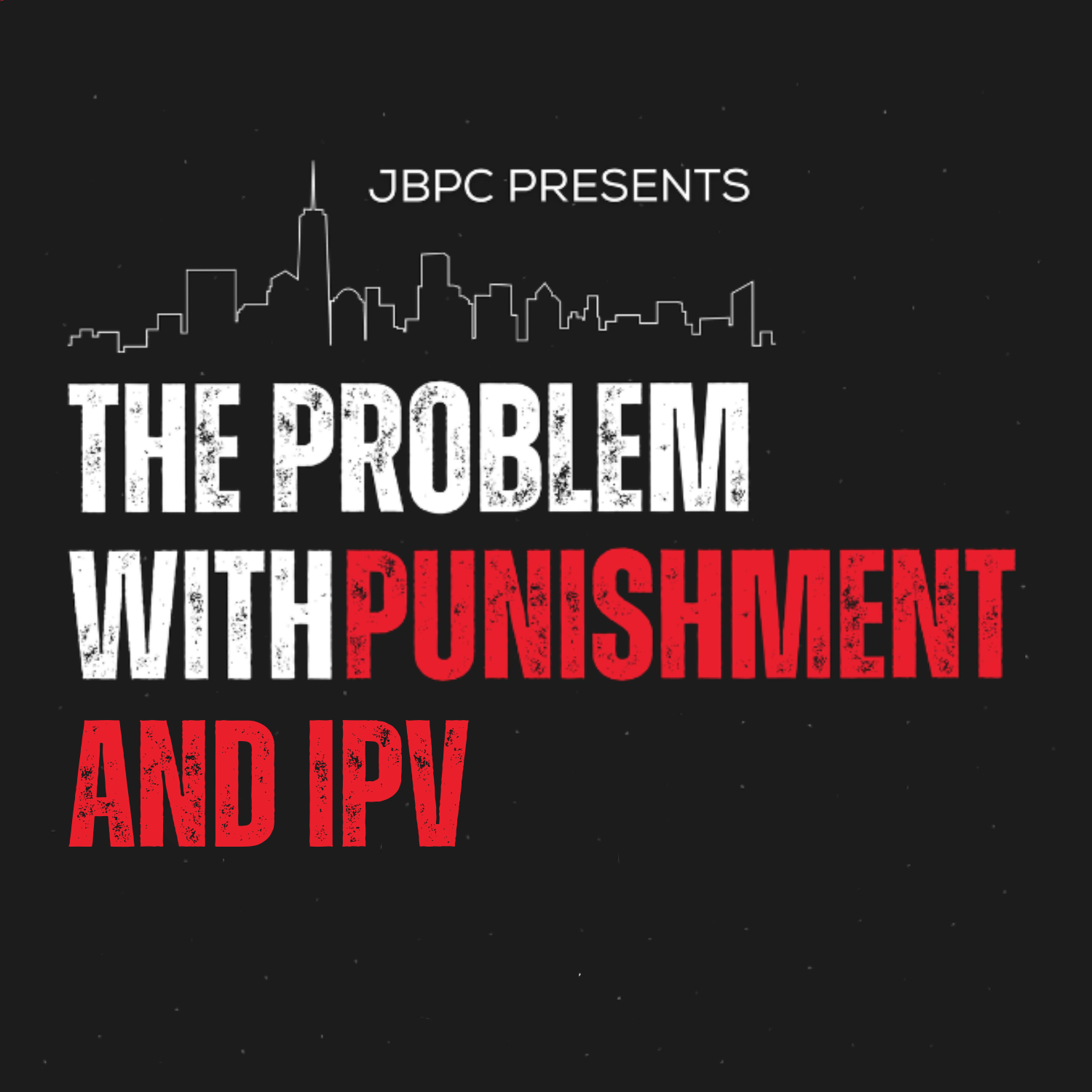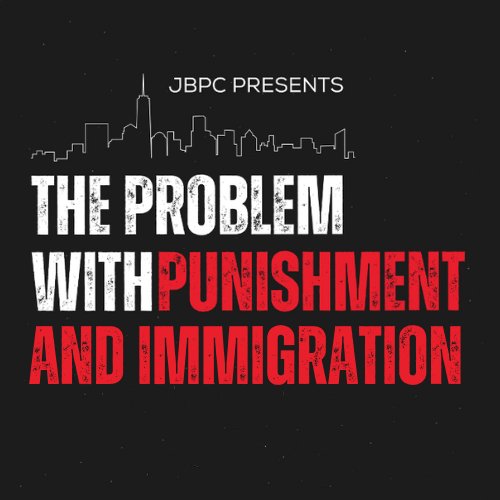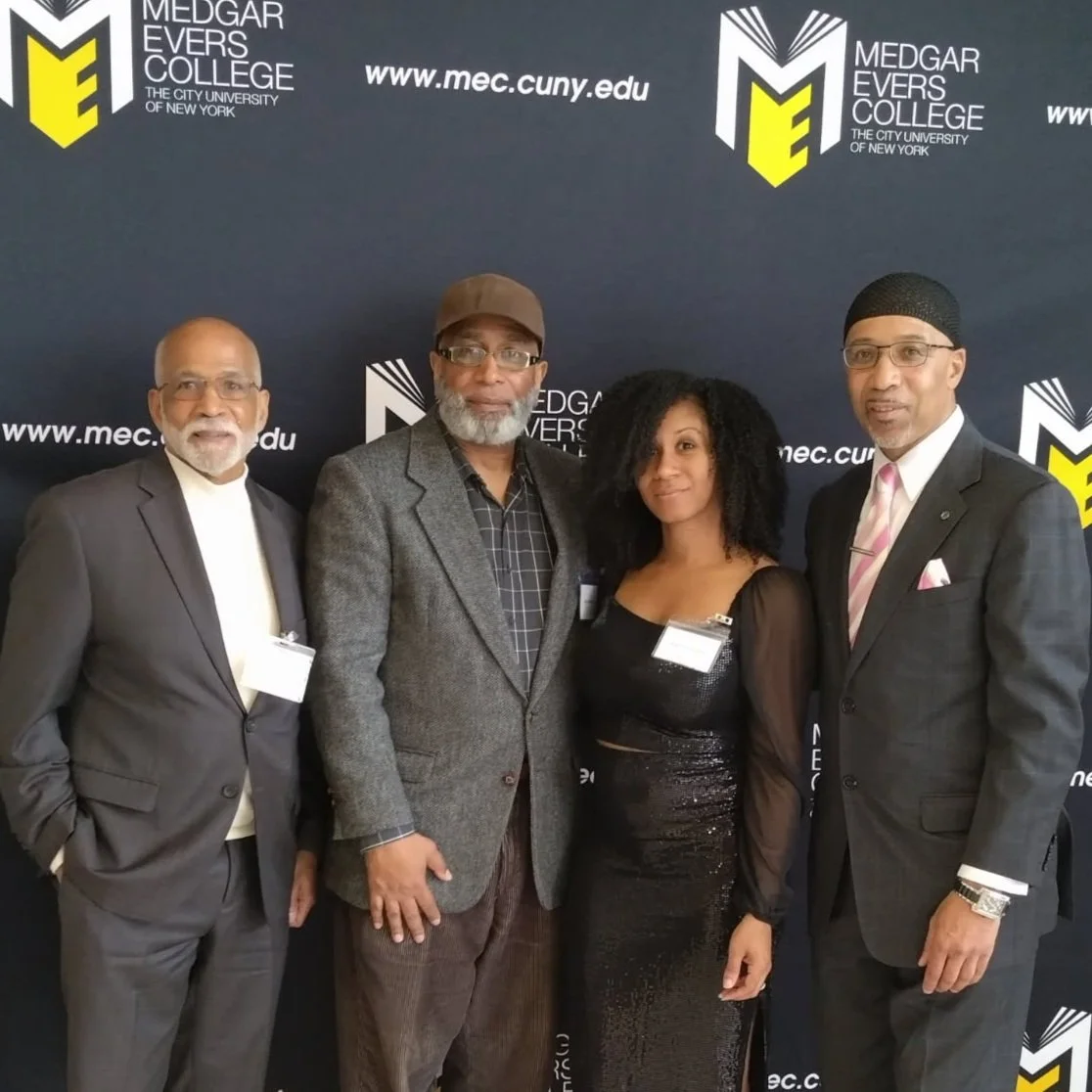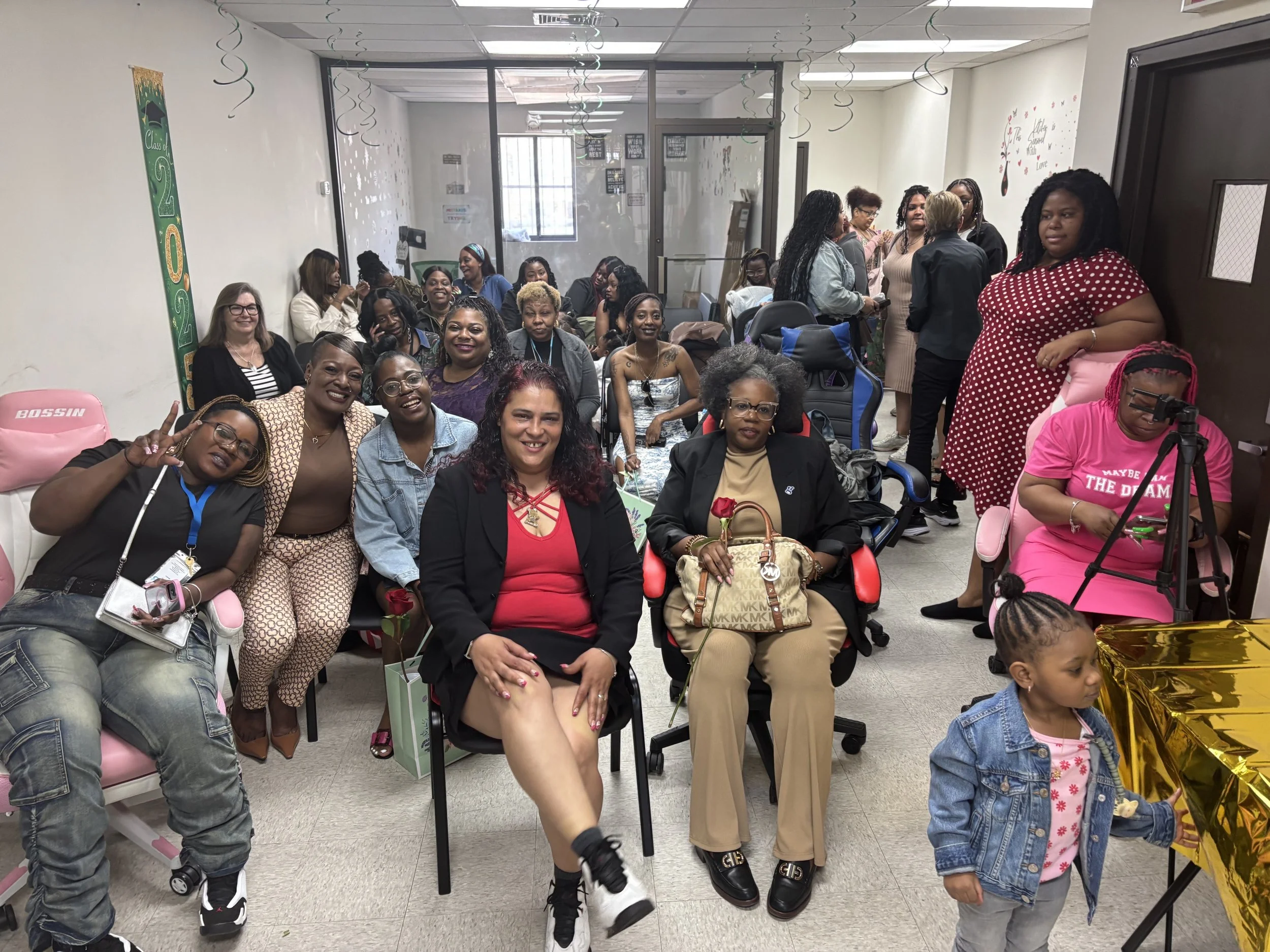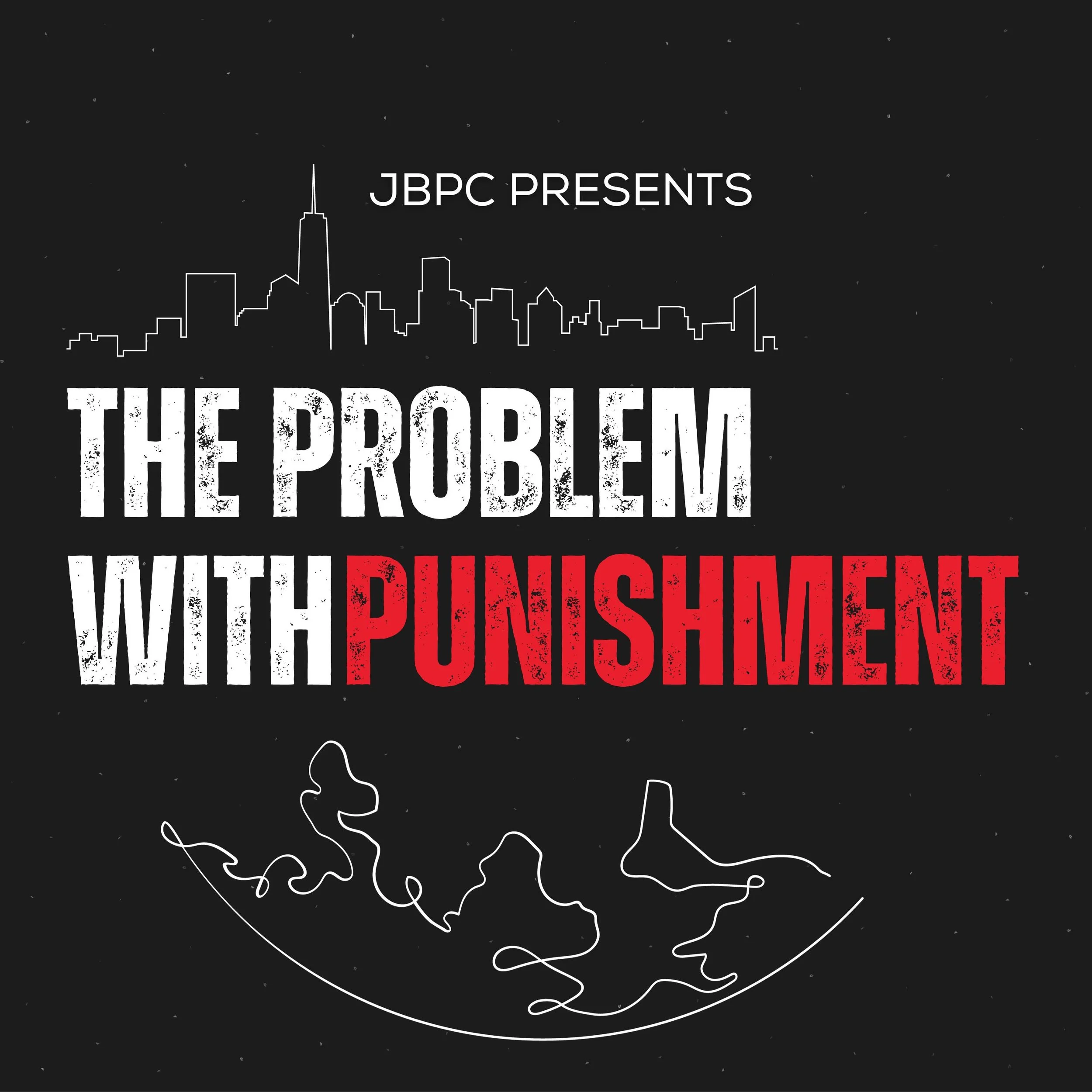The problem with Punishment
This is the Problem with Punishment Podcast – Spoiler Alert! The problem with punishment is it doesn’t work. But the bigger problem is that we turn to punishment in every aspect of our lives. From our families to our neighborhoods, our boroughs, our city, we keep expecting punishment to make things better when for the most part, it makes whatever problem we’re addressing worse. Every time punishment fails, it hurts. Some people have taken the pain of that failure, and turned it into purpose.
We’re talking to a range of New Yorkers who have experienced firsthand the failure of punishment and who have found or created something better to do instead. From gun violence to child abuse to drug addiction, New York can lead the way in actually solving some of our most pressing problems.
But first, we have to talk about the Problem with Punishment.
EP 10: The Problem with Punishment and IPV
Intimate partner violence (IPV) is still far too common. It's important to end IPV, on that many of us agree. So is punishing people who hurt their intimate partners going to end IPV? What can we do instead? For our final episode of Season One, we discuss with a number of women working in the movement: Judith Clark at the Survivors Justice Project, Kassiel Gonzalez at VIP Mujeres, Purvi Shah and Darlene Torres.
EP 9: The Problem with Punishment and Immigration
We recorded and edited this episode in spring and summer 2025, during a horrifying effort to punish immigrants. There are ICE raids in Home Depot parking lots. Masked ICE agents are grabbing people who are attending their immigration hearings. Anti-immigrant rhetoric, which has been growing over decades, is reaching a brutal new turning point. We find ourselves asking, what more can we do to keep our communities and neighbors safe? And why are we still trying to punish our way there?
In this episode, we speak with Donald Anthonyson, a New Yorker who has spent decades advocating for immigrant rights. We also speak with Yasmine Farhang of the Immigrant Defense Project, Joshua Epstein at Queens Defenders and Rosa Cohen-Cruz from Bronx Defenders. They share insight into the particulars of immigration law right here in New York. How does it impacts each of us? And what we can all do in this moment to protect each other?
EP 8: The Problem with Punishing Pregnancy
Pregnancy is a place of both power and vulnerability. For much of human experience, power and decision-making when it came to pregnancy was in the hands of women. It was an issue of health and healing. But no more. These days, we're substituting legal intrusions for health care. Between the racist War on Drugs and the Dobbs decision, there are a lot of things pregnant people can be punished for.
In this episode, we speak with Karen Thompson of Pregnancy Justice and jasmine Sankofa of Movement for Family Power about their work. You might remember jasmine from episode 4, the Problem with Punishing Parents. And let's hear from a doctor! We hear a clinical perspective from Dr. Mishka Terplan, an OB-GYN. And Nadia Ben-Youssef, a member of the Justice Beyond Punishment Collaborative, shares part of her pregnancy story.
Ep 7: The Problem with Punishment and Homicide
Homicide is a horrifying act of harm. It's an action with permanent consequences. Our stories of homicide almost always define justice as punishment instead of healing. But punishment doesn't bring back the dead. It doesn’t promote healing for families who lose loved ones. And often punishment creates cycles of violence instead of interrupting them.
Our host Kathleen lost her brother to homicide when he was 20 years old. For this episode, Kathleen sits down with three amazing humans. Stanley (Jamel) Bellamy, Roslyn Smith, and Rev. Dr. Sharon White-Harrigan have all done decades of work to interrupt harm in their communities. They have all also served time for homicide and spent years reckoning with the impact of their actions. Together they talk about the limits of punishment for preventing future harm and helping people heal.
We also speak with Erika Sasson, an attorney and respected restorative justice practitioner. Erica has facilitated "direct dialogs" between people who have committed homicides and the loved ones of their victims.
EP 6: The Problem with Punishment and Housing
Shelter is one of our most basic needs - and an international human right. Yet millions of Americans are denied their right to housing, including tens of thousands who have been formerly incarcerated - making it even more difficult for them to start anew upon release. In this episode, we speak with Ashanti, a young woman who experienced incarceration and housing insecurity, and Reverend Dr. Sharon White-Harrigan, a formerly incarcerated survivor who struggled to find adequate housing. Zoni Rockoff shares the insurmountable barriers faced by clients she works with as an attorney at Neighborhood Defenders Service. We also speak with Angela Scott-Sheppard, the Associate Vice President of Congregate Housing at Fortune Society, who runs one of the largest re-entry housing programs in NYC, and who shows us there is a better way - and it’s not more punishment.
EP 5: The Problem with Parole
Too often, we define long prison sentences as "justice." But when we define incarceration as justice, it creates a big problem. Parole, or the end of a person's incarceration, can feel like we're losing out on justice. I know well the feelings connected to this. I have my own family's experience with homicide. And I have talked and listened to many other folks affected by homicide.
For this episode, we talk with Jamel and Jose, New Yorkers who served long prison sentences and were subject to New York's parole process. And we talk with Carol, who served on the Parole Board before leaving and becoming a critic of New York's system. And you know this podcast, we don't just talk about what is wrong with punishment. We talk about what can work better! Our guests talk about better approaches to transforming people and preventing future harm.
ep 4: The Problem with Punishing Parents
Stories of child abuse or the death a child shock us, and they should. But how much do you know about the systems that are supposed to prevent this? We talk to several moms who went through New York's "child welfare system" wringer. They decided to do something better to support parents and became part of the community at Rise. These moms and our other guests talk about why our "family policing" system doesn't work. And how we could replace it with strategies that actually support safe and healthy families.
Ep 3: Punishment and Schools
We can all agree that all the children and adults in a school should feel safe and should actually be safe. But when violence or the threat of violence happens, how do we get safer schools?
In this episode, we explore how students want–and are creating–safer school for themselves without relying on punishment. We visit Martín Urbach and the Circle Keepers, a restorative justice and community organizing program for young people. We speak with two students who tried to start a restorative justice club at their high school. We also talk to Ashley C. Sawyer, Esq., an education justice advocate and adjunct faculty at Brooklyn Law School. She talks about the role of punishment in schools and the school-to-prison pipeline.
We all want safer schools. What are the skills and resources we need to get there?
EP 2: Addiction
For this episode, we visit the wondrous folks who run OnPoint NYC, an overdose prevention center. They base their work in the principles of harm reduction, which we explore in this episode. And we also talk to Toni Smith, the New York State Director at Drug Policy Alliance. Together they explain the futility and danger of trying to control addiction by punishing people for drug use.
Ep 1: Gun Violence
Gun violence is horrifying, and each life lost to a gun is a tragedy. Most interventions involve creating punishments for gun possession or use. That can sound like common sense, but in reality, it's a racialized practice. And it's not been that effective for keeping people safe from guns. Are there better ways to prevent gun violence? For this episode, we go to Queens to talk with the fine folks at Community Capacity Development. They have time-tested ideas about the causes and antidotes to gun violence. They're doing the work in Queensbridge, one of the biggest public housing projects in North America. Let's listen to them.
Problem with Punishment
This is the Problem with Punishment Podcast – Spoiler Alert! The problem with punishment is it doesn’t work. But the bigger problem is that we turn to punishment in every aspect of our lives. From our families to our neighborhoods, our boroughs, our city, we keep expecting punishment to make things better when for the most part, it makes whatever problem we’re addressing worse. Every time punishment fails, it hurts. Some people have taken the pain of that failure, and turned it into purpose.
We’re talking to a range of New Yorkers who have experienced firsthand the failure of punishment and who have found or created something better to do instead. From gun violence to child abuse to drug addiction, New York can lead the way in actually solving some of our most pressing problems.
But first, we have to talk about the Problem with Punishment.
